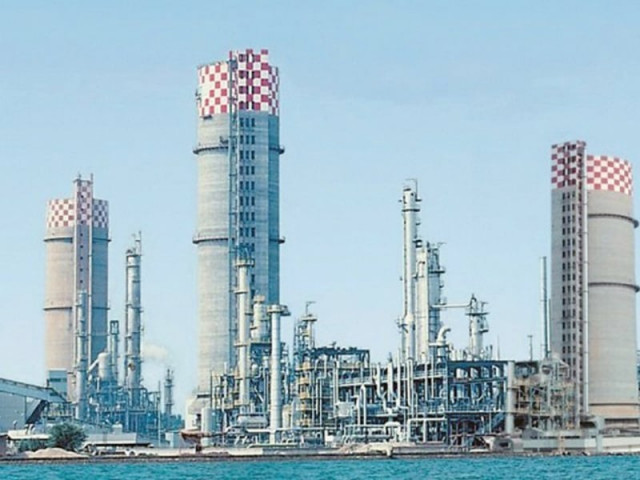Gas for power plants: Water and power ministry fails to win ECC’s blessing
Committee rejects demand for diverting gas supply from fertiliser to power producers.

The projections made by fertiliser manufacturers painted a relatively comfortable position, requiring import of 125,000 tons to keep reserves of at least 200,000 tons at the close of Kharif season in September. PHOTO: FILE
The government has dismissed the demand of the Ministry of Water and Power for diverting gas supply from fertiliser plants to electricity producers, a step aimed at saving foreign currency reserves by enhancing urea production and relying less on imports.
According to sources, government officials told the Economic Coordination Committee (ECC) of the cabinet, in a meeting held on March 27, that the Ministry of Water and Power had sought gas allocation from the Mari field for power production in the coming summer months, when electricity demand would hit its peak.
They suggested that 60 million cubic feet of gas per day (mmcfd), which was produced by Mari and previously earmarked for the Guddu power plant, should be made available to fertiliser plants, which would churn out 150,000 tons and significantly slash the need for import in the just-started Kharif sowing season.
The ECC members noted that even with higher demand, an improved gas supply could take the commodity’s reserves to 204,000 tons.

They found no shortage of urea for the time being and were of the view that better gas supply to manufacturing units from the dedicated fields could enhance their production.
Demand, supply position
Keeping in view the gas provided to the fertiliser industry these days, import of up to 125,000 tons would facilitate the country in meeting the urea requirement for Kharif 2014. However, there was a need to review gas availability for achieving maximum urea production, the ECC suggested.
Earlier in a meeting on March 21, the ECC constituted a committee comprising secretaries of finance, industries, petroleum, national food security and water and power to assess the demand and supply of urea for the Kharif sowing season. The committee has met several times to discuss the matter.
The projections made by fertiliser manufacturers painted a relatively comfortable position, requiring import of 125,000 tons to keep reserves of at least 200,000 tons at the close of Kharif season in September, as recommended by the Ministry of National Food Security and Research.
Since these estimates differed from the assessment of the Ministry of Industries and Production, detailed discussions were held to reconcile the figures.
According to the deliberations, the opening stock will be 374,000 tons keeping in view the commodity with each manufacturing unit. Production was estimated at 2.64 million tons based on restricted gas supply. In case of better gas availability, the output could rise in the range of 190,000 to 283,000 tons.
The ECC members pointed to slightly varying estimates of domestic demand during the Kharif season. The manufacturers put the demand at 2.9 million tons whereas the Ministry of Industries and Planning Commission assessed the need at three million tons.
Based on the manufacturers’ production estimate of 2.6 million tons, there would be a surplus of 114,000 tons. However, this would fall to 14,000 tons on the basis of estimates of the Ministry of Industries and Planning Commission.
With better gas supply, another 190,000 tons would be produced, taking the surplus to 304,000 tons according to the estimate of manufacturers and to 204,000 tons as per estimates of the Ministry of Industries and Planning Commission.
The ECC agreed that the country may initially import up to 125,000 tons. Later, it would review the demand in the third week of April before taking any corrective measures.
Published in The Express Tribune, April 10th, 2014.
Like Business on Facebook, follow @TribuneBiz on Twitter to stay informed and join in the conversation.



















COMMENTS
Comments are moderated and generally will be posted if they are on-topic and not abusive.
For more information, please see our Comments FAQ